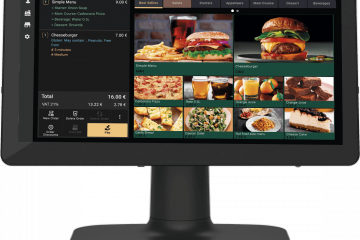Quick Commerce and Retail: the relationship expands

Immediacy has become essential to remain competitive and deliver shopping experiences that meet consumer expectations.
In just 10 months, 30 new Quick Commerce companies have emerged in Western Europe, a market ripe for this business model as 78% of the population lives in urban areas.
When we think of Q-commerce and deliveries in less than 30 minutes, we think of food and companies such as Gorillas, Just Eat, Glovo… But the success of this format among consumers is opening the doors to retail and we are already seeing the first synergies.
Last September, Glovo closed a deal with Fnac to offer more than 10,000 items with this delivery method, but it has not been the only step towards retail.
The ultra-fast delivery company has already closed deals with Aldi and Dia supermarkets and even with clothing brands such as C&A with the aim of building the largest on-demand “shopping mall” in the market by extending this type of delivery to all types of products.
Q-commerce players
Within the Q-commerce universe there are different business models:
- Ultra-fast delivery companies such as Gorillas or Cajoo with their own network of warehouses spread around the city. These warehouses or dark stores, allow them to manage their own inventory and be able to offer delivery service in 10 minutes;
- Hyper localized delivery services such as Uber eats or Glovo act as intermediaries between the company that sells the product and the consumer. In this case, the delivery service provides purely transportation and punctuality also depends on the speed of delivery by the seller.
With the emergence of new ultra-fast delivery companies and formats, traditional “legacy” retailers have reacted and created their own fast delivery solutions by adapting their delivery processes with the support of robotic warehouses, by opening dark stores or modifying their existing physical stores to combine direct sales with pick-up points for riders.
In all these scenarios, efficient inventory control and management in the preparation centers is essential, using strategies such as cross-docking in dark stores and detailed demand forecasting, which is achieved through daily order tracking.
In the case of food products, this is even more fundamental in order to avoid product expiration dates and to ensure a more sustainable model.
This new business model has not been without controversy in Spain due to the type of treatment given to delivery drivers, better known as riders. So much so that last August the Rider Law came into force and, after 100 days of its implementation, it has already left its mark.
Shortly after the announcement of the changes that would come with the Rider Law, Deliveroo announced that it would leave the country. The British company has not managed to position itself among the top three preferred options for consumers and the new regulations were the straw that broke the camel’s back.
Its departure has been gradual, but as of December there is one player less and the fight begins to capture those 10,000 restaurants in 70 cities that, until now, worked with Deliveroo.
A second life for empty premises
In the last few years we have seen a multitude of neighborhood restaurants become empty with the rise of eCommerce and the crises that have hit the local economy.
The basis of the quick commerce model is the dark stores, small warehouses of 200 to 400 square meters spread throughout the city to meet promised delivery times.
This type of store-warehouse is not usually located in the city center or on shopping streets because they do not seek walk-in trade.
Quick commerce means new life for these stores but can generate problems for neighbors who complain of the nuisance created by delivery drivers waiting on the sidewalk to pick up their orders.
Is quick commerce a business model that can be extended to other sectors beyond basic necessities?
Consumer electronics and fashion retailers, such as Fnac and C&A, already offer this type of delivery in Spain through their collaboration with fast delivery companies. As a retailer, are you considering joining this new model? Tell us what you think in the comments box below.




No Comment